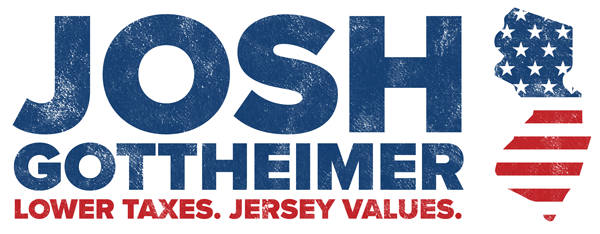May 17, 2018
Clawing our federal tax dollars back to New Jersey
Last month, Rep. Ted Budd, a member of Congress from North Carolina, criticized the recent funding approved for the Gateway Project— the much-needed investment for new tunnels from New Jersey to New York (the current two, more than a hundred years old, are literally crumbling).
Ted’s a friend, but his characterization of the investment to secure the Gateway to one-fifth of our nation’s economy as a “disgrace” is the epitome of chutzpah. For decades now, New Jersey has been propping up “Moocher States” like his own North Carolina. For every federal tax dollar they pay, they get $1.55 back, compared to our historical return of $0.33.
Mississippi gets $4.38 and Alabama gets $3.14 for every dollar. In other words, we in New Jersey are paying for their police, their firefighters, and their roads— not to mention the millions they get in subsidies for things like tobacco. Instead of relying on their own local taxes, states like ours often cover half of their costs. That’s why I introduced an “Anti-Moocher” bill, to help even the odds and provide tax credits to states like ours that receive far less than they pay.
It’s important to understand why some states have been so successful in bringing federal dollars back home— and others haven’t. At the core of the problem was something my dad always taught me: if you don’t ask you don’t get. My predecessor just didn’t believe in federal grants, and didn’t encourage our towns and first responders to apply for them. So, the Moochers grabbed them, instead.
That’s changed now. Municipalities in the Fifth District are now applying for grants that will help offset certain expenses that would otherwise come out of local taxpayer’s wallets – and hit the property tax line. There are federal grants available for essential items including fire trucks and equipment for our first responders, breakfasts for low-income children at local schools, and vehicles to help with storm cleanup.
Why should those resources go to Alabama when they could go to New Jersey?
We’ve clawed back an average of $290 for every household in the Fifth District— a 16 percent increase from what we’ve historically received. That’s $290 back to every family to help firefighters put out a blaze and law enforcement fight crime and terror and protect the children in our schools. $290 back for storm cleanup, repair, and emergency management.
We have had huge wins in communities like Wantage, where they received $102,000 in their first firefighter grant in more than 13 years, and in Franklin Lakes where they clawed back more than $600,000 to ensure that their community has the ability to respond to daytime fires. Paramus won funding for five new police officers. Vernon and Franklin Borough became the first towns in Sussex County ever to register for surplus equipment programs, and Belvidere, in Warren County, clawed back new emergency equipment worth $800 per family.
We have had huge wins in communities like Wantage, where they received $102,000 in their first firefighter grant in more than 13 years, and in Franklin Lakes where they clawed back more than $600,000 to ensure that their community has the ability to respond to daytime fires. Paramus won funding for five new police officers. Vernon and Franklin Borough became the first towns in Sussex County ever to register for surplus equipment programs, and Belvidere, in Warren County, clawed back new emergency equipment worth $800 per family.
And, in Passaic County, West Milford’s Volunteer Fire Company No. 1 received $160,000 for protective gear. Passaic County’s seen an 808 percent increase in firefighter grants, and in total we’ve increased funding for its Fifth District towns by $2 million or 65 percent.
Clawing back our tax dollars from Moocher States is an essential step to property tax relief. Since December, I’ve also been working on a new tax cut plan to allow New Jersey taxpayers to reduce their property and federal tax bills by donating to new town charitable funds. Basically, towns that opt in, will be able to allow residents to contribute to funds established to support law enforcement, parks, and schools— and receive a charitable deduction and property tax credit for doing so.
The good news is that this deduction was signed into state law last week— and it’s consistent with legal precedent and IRS rulings. In fact, 33 states— largely Red States— have been utilizing the provision for decades. To boot, it will allow our residents and businesses to fight back against the federal tax hike bill that gutted the state and local tax deduction— or SALT— and has driven up taxes for many residents and businesses in northern New Jersey, sending property values down 7.3 percent, according to Moody’s.
This is how we can make North Jersey more affordable— by driving up our return on investment, cutting wasteful spending, and giving residents real property tax relief. Those three goals are ideas Democrats and Republicans can get behind. They’re good for New Jersey. So is clawing back every nickel of our hard-earned money from the Moocher States. There’s nothing partisan about saving money and cutting taxes, and making out state a more inviting place to start a business or raise a family.
Rep. Josh Gottheimer, D-Wyckoff, represents New Jersey’s Fifth District in the U.S. House of Representatives. He is the co-chair of the bipartisan Problem Solvers Caucus. Details of his efforts to improve New Jersey’s return on investment are available at www.Gottheimer.house.gov

